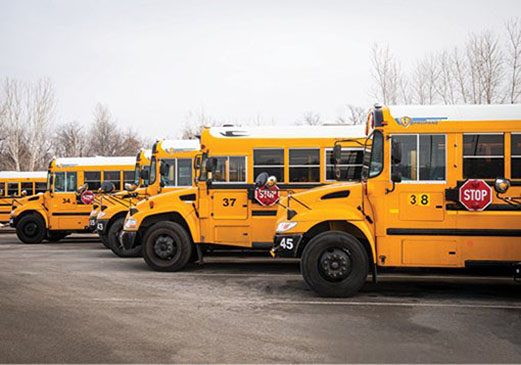Diesel vs Propane School Buses
It would take quite some time to count the many helpful uses for propane in the home and at commercial and industrial businesses. But what we sometimes forget is how propane, or autogas as it is referred to when used as an over-the-road fuel source, is both the number-one alternative fuel around the world and here in the United States.
School districts across the country are the fastest-growing users of propane autogas in buses. If you’ve ever traveled to school in a diesel-powered bus or even were caught behind one at a stop sign or traffic signal, you know that there has to be something better and safer for school children and your community than these emission-spewing machines.
Here are some of the top advantages transportation professionals enjoy when incorporating propane autogas-fueled vehicles into their fleet:
- Fuel cost - According to this article on SchoolBusFleet.com, propane can cost up to 50% less than diesel. That’s savings that can add up quickly regardless of fleet size.
- Vehicle maintenance - Because propane burns much more cleanly than diesel, maintenance costs and requirements are lessened as well. Propane autogas buses also use less oil than their diesel counterparts, offering additional savings.
- Immediate startup - School buses are often counted on to deliver students when it’s downright cold outside. According to the authors of this case study, propane buses start up right away in even the harshest conditions, but diesel buses require additional time and must be plugged into block heaters.
- Reduced noise - Those who have relied on the much louder diesel engines to alert them that the bus is near may not agree, but the much quieter propane buses allow us to hear the birds chirp and, more importantly, allow bus drivers to be more aware of important situations both inside the bus and outside.
Not to be forgotten are tailpipe emissions, which is an area where propane autogas shines bright as well.
Testing conducted by researchers at West Virginia University found that emissions measured from propane autogas school buses are significantly lower than those from diesel buses. Focusing on nitrogen oxides (NOx), the study, commissioned by the Propane Education & Research Council (PERC), revealed NOx emission were up to 19 times higher in city routes and 34 times higher during stop-and-go routes with diesel school buses.

“This study is monumental from an emissions and health perspective for students, schools and communities across the country,” says Tucker Perkins, president and CEO of PERC. “Children arriving to school in propane buses aren’t exposed to harmful NOx emissions; they feel better and are more prepared to learn.”
The full propane autogas study, titled “In-Use Emissions and Performance Testing of Propane-Fueled Engines,” can be found here.
Switching a fleet to propane is easier than you think, especially when you work with the propane professionals at Ferrellgas. Connect with a Ferrellgas Account Manager today!
CATEGORIES
Archives
- Summer 2025
- Spring 2025
- Winter 2024
- Fall 2024
- Summer 2024
- Spring 2024
- Winter 2023
- Fall 2023
- Summer 2023
- Spring 2023
- Winter 2022
- Fall 2022
- Summer 2022
- Spring 2022
- Winter 2021
- Fall 2021
- Summer 2021
- Spring 2021
- Winter 2020
- Fall 2020
- Summer 2020
- Spring 2020
- Winter 2019
- Fall 2019
- Summer 2019
- Spring 2019
- Winter 2018
- Fall 2018
- Summer 2018
- Spring 2018
- Winter 2017
